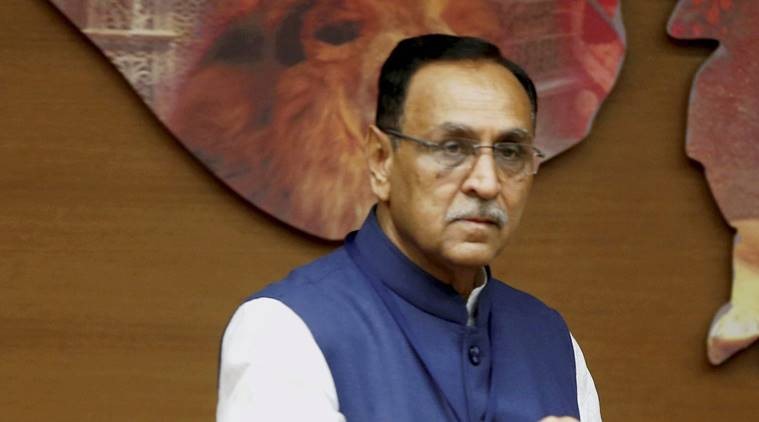 Vijay Rupani. (File)
Vijay Rupani. (File)
Announcing Gujarat Industrial Policy 2020 that aims to provide an estimated Rs 40,000 crore as subsidies to industries in the next five years, the state government on Friday said that the new policy will help lease out government land to industrialists, provide incentives to private industrial parks and also provide “relocation incentives” to units looking to relocate in wake of Covid-19 pandemic, especially from China.
“Gujarat welcomes all those industrial units who are planning to shift from China and other countries due to the pandemic. We will decide on a case-to-case basis. We have already held four meeting with Japan, three meetings with United States, one each with Germany and UK in this regard,” Rupani said while announcing the new industrial policy.
The chief minister said that his government is yet to take a decision of hosting the biannual Vibrant Gujarat summit in January 2021 due to the Covid situation. However, the new policy provides for appointment of dedicated “relationship managers” by the Industrial Extension Bureau (iNDEXTb) that hosts the summit. These managers are meant to be the single point of contacts for investors.
Gujarat Industrial Policy 2015 came to an end on December 31, 2019. The government had extended it up to the release of a new policy or December 31, 2020, whichever is earlier. “The success of the last policy can be gauged from the fact that Gujarat stands first in terms of number of Industrial Entrepreneurship Memorandum (IEM) filed for 2019. This is 51 per cent of all IEMs filed in India and the proposed investment promised for Gujarat is USD 49 billion,” said Rupani, who also citied high FDI inflows and low unemployment rates while crediting the old policy. When asked, if the government has set a target for investments for the next five years in the new policy, Rupani said, “The growth will be more than the previous five years.”
The new policy also provides an average annual outlay of Rs 8,000 crore, which state government officials said was meant to provide incentives to the industries. “If we look at the subsidy amount, it has increased almost three times in the last five years showing an exponential growth,” claimed the government.
Rupani also said that Gujarat will become the first state to “delink incentives from SGST” under the new policy. “Since GST began to be implemented, companies were being compensated as per ‘Net SGST’ on goods sold within the state. There were several complexities in calculations of the tax of goods consumed within the state. Hence, Gujarat is the first state to undertake a bold decision to delink incentives from SGST. Now, up to 12 per cent of fixed capital investment (FCI) will be given to large industries for setting up manufacturing operations in the state in form of capital subsidy,” Rupani said adding that there was no upper ceiling on the amount of inventive to be given to a particular unit. This percentage of FCI varies from 4-12.
Under the new policy that pushes for “Aatmanirbhar Gujarat”, the government for the first time will be providing support to up to 65 per cent of the cost of acquiring foreign patented technologies by MSMEs. However, the maximum support will be up to Rs 50 lakh. In order to encourage more MSMEs to use rooftop solar power, the government will pay 50 paise more to every unit of solar power bought from MSMEs. The new purchase price stands at Rs 2.25 per unit. The policy also announces capital subsidy and interest subsidy for MSMEs.
Rupani said that as high land costs were pushing the cost of projects northwards, the government in the new policy has decided to provide government land to industries on long term lease of up to 50 years. This lease will be six per cent of the market rate.
For start-ups, the new policy increases the seed support from Rs 20 lakh to Rs 30 lakh. It also provides increased sustenance allowance and additional fiscal support.
The policy also provides incentives to private developers for setting up private industrial parks on the state. The incentive will be 25 per cent of fixed capital investment up to Rs 30 crore. In case of Tribal talukas, the policy will support setting up of industrial parks at 50 per cent of fixed capital investment up to Rs 30 crore.
The chief minister said that the new policy was framed after a series of meetings held with various stakeholders by nine task force committees of the government. The policy focuses on 15 thrust sectors. These sectors have been divided into core sectors — where the state already has a strong manufacturing base — and sunrise sectors which include electric vehicles, waste management projects and green energy.